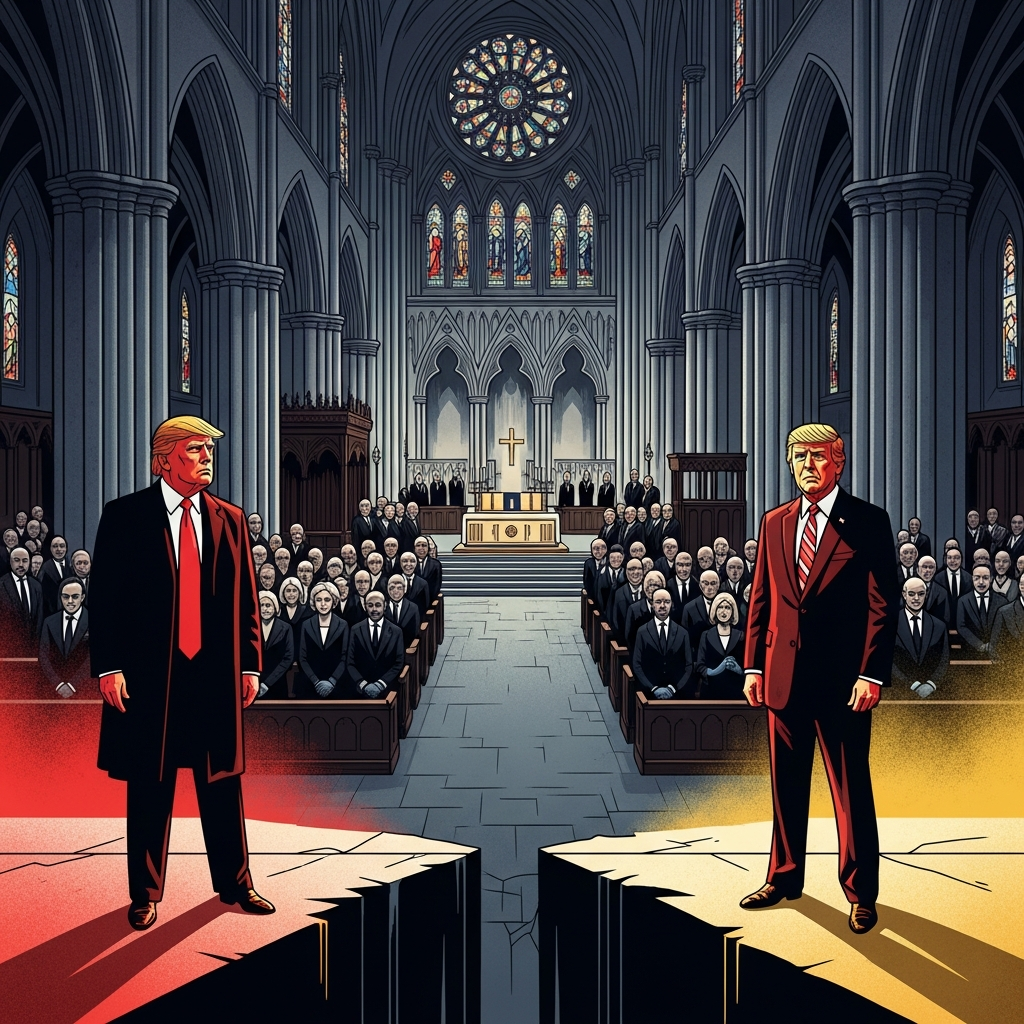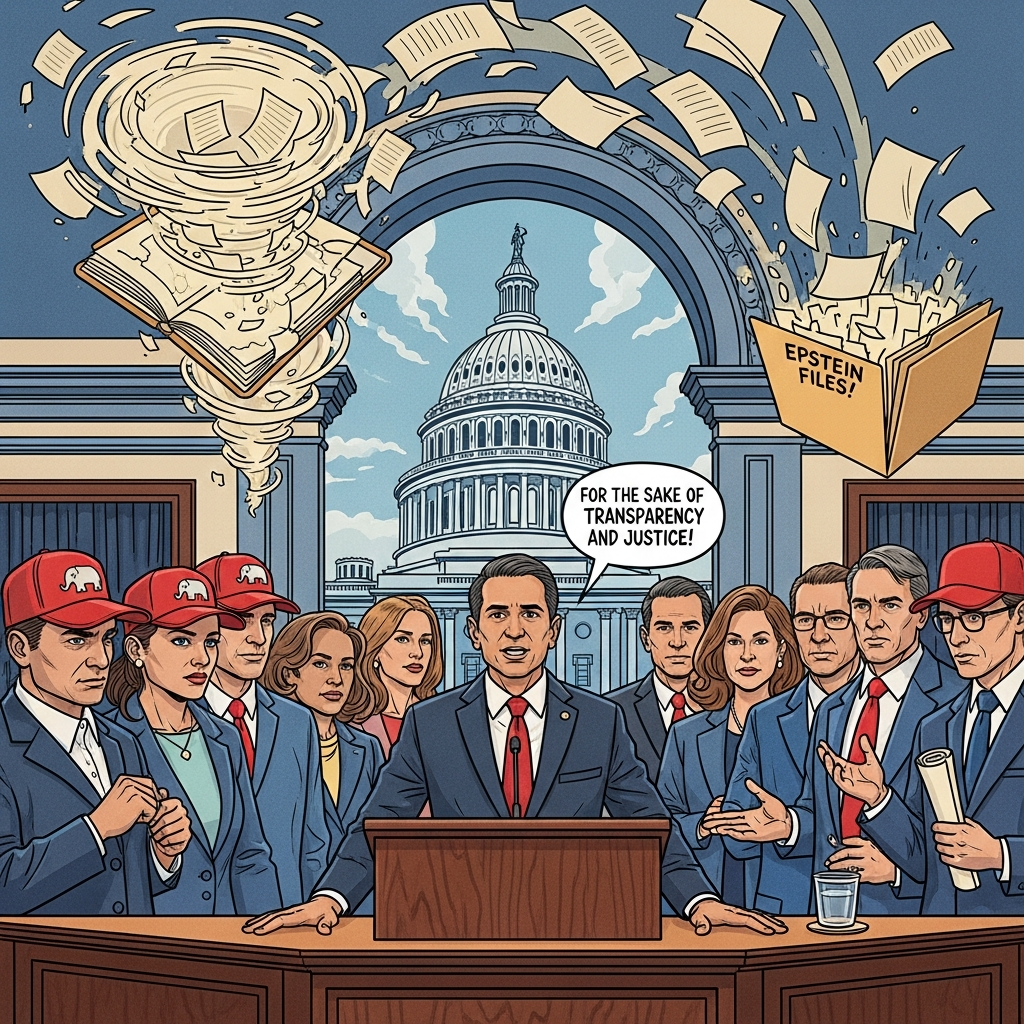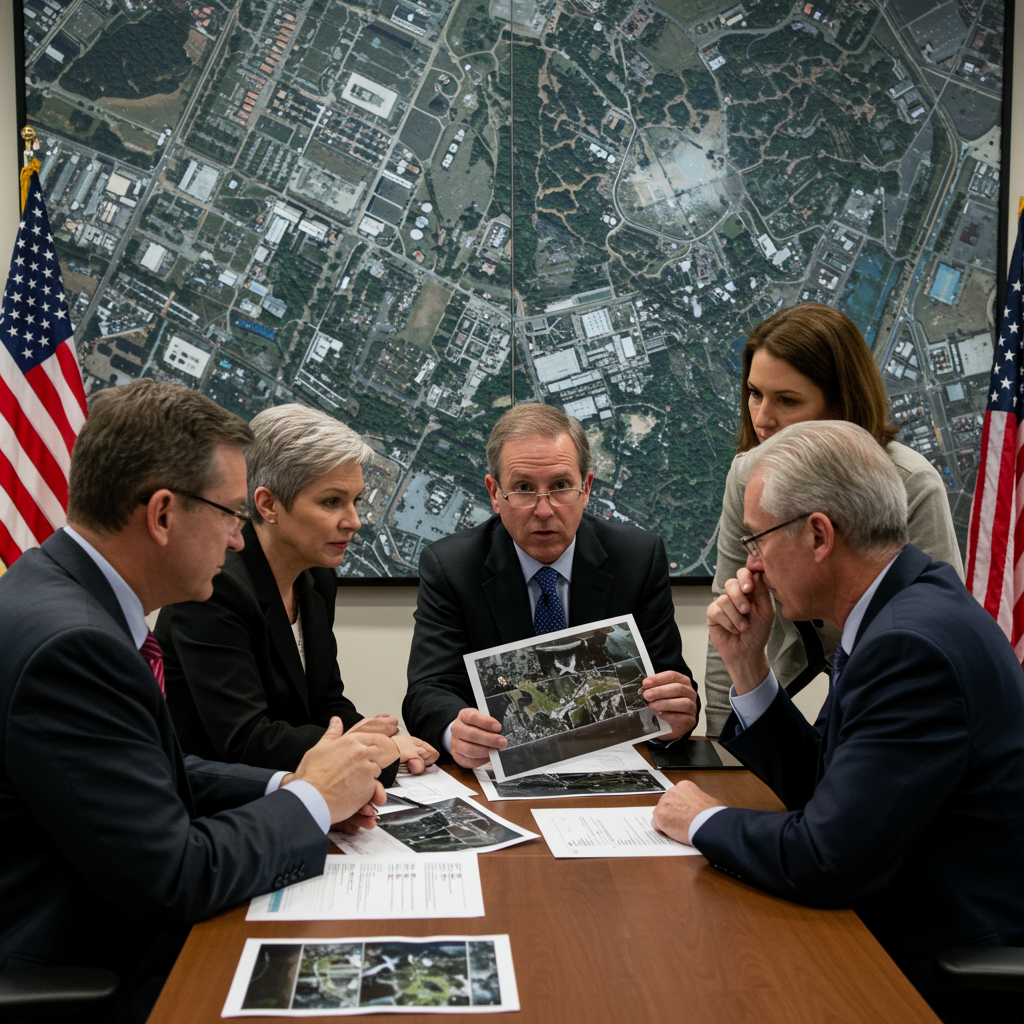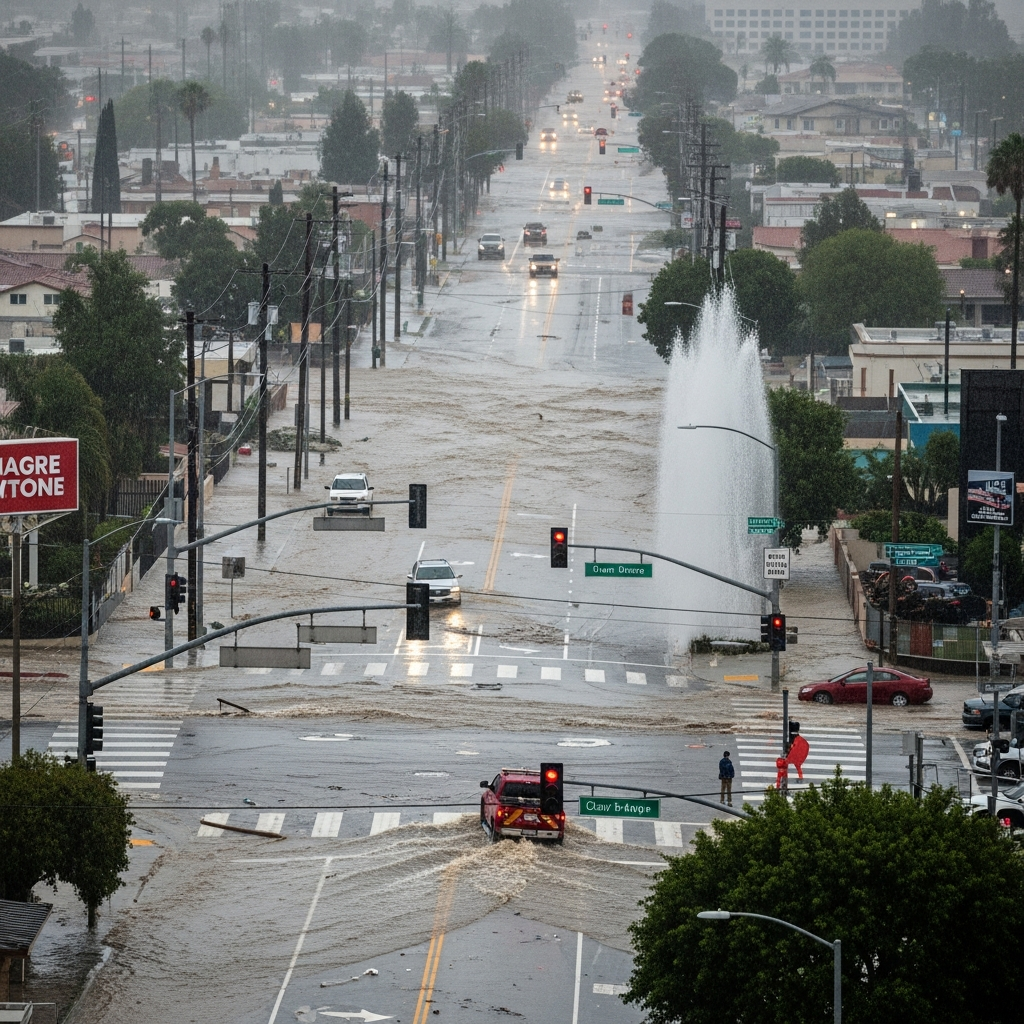The political landscape of Washington D.C. was starkly illuminated recently as former President Donald Trump and Vice President JD Vance were notably absent from the funeral service of former Vice President Dick Cheney. Held at the revered National Cathedral, Cheney’s memorial drew a significant gathering of America’s political elite, both past and present, yet pointedly excluded figures who represent a newer, more populist wing of the Republican Party. This highly publicized snub underscores the deep ideological rifts that continue to fracture American politics, particularly within the conservative movement.
This exclusion, confirmed by a White House official, wasn’t merely an oversight; it was a deliberate statement stemming from years of escalating animosity between the Cheney family and Donald Trump. As the nation observed a farewell to one of its most consequential, and at times controversial, political architects, the guest list itself told a powerful story of shifting alliances and unwavering principles.
A Gathering of Eras: Old Guard Republicans and Bipartisan Figures
The somber 11 am service at the National Cathedral was a tableau of traditional American political power. Front pews were filled with a bipartisan delegation, symbolizing a different era of governance. Former President George W. Bush, who delivered a heartfelt eulogy, sat alongside current President Joe Biden and First Lady Jill Biden. Vice President Kamala Harris, former Vice Presidents Mike Pence, Al Gore, and Dan Quayle, alongside former House Speaker Nancy Pelosi and Chief Justice John Roberts, completed a striking bipartisan assembly. Their presence highlighted a collective respect for an institution, even amidst personal or political disagreements.
George W. Bush warmly remembered Cheney, praising him as “everything a president should expect in a second-in-command” and a man “devoted to protecting the United States.” Bush recounted Cheney’s initial reluctance to serve as his running mate, yet his ultimate trust in Cheney’s judgment. He lauded Cheney’s “talent and his restraint” which, he noted, exceeded his ego, describing him as “smart and polished, without airs.” Even President Biden, despite having once called Cheney “the most dangerous vice president,” attended, honoring a shared commitment to public service.
While many influential figures attended, some notable absences included former Presidents Barack Obama and Bill Clinton, with Clinton’s spokesperson citing an unavoidable scheduling conflict. Perhaps one of the most unexpected attendees was liberal MSNBC host Rachel Maddow, a presence that subtly illustrated how Trump’s impact has profoundly reshaped traditional political alliances. Her appearance underscored the notion that certain foundational principles, transcending party lines, remain sacrosanct for some.
A Decades-Long Feud Culminates: The Roots of the Exclusion
The deliberate exclusion of Donald Trump and JD Vance was hardly a surprise to seasoned political observers. It was the culmination of a bitter and highly public feud that intensified dramatically following the January 6, 2021, attack on the U.S. Capitol. This event, which saw pro-Trump rioters attempt to disrupt the certification of the 2020 election results, became a definitive turning point for many establishment Republicans, including the Cheney family.
At the heart of this antagonism was Liz Cheney, Dick Cheney’s daughter, who served as Vice-Chair of the House January 6 committee. Her prominent role in investigating the Capitol riot and her steadfast criticism of Trump’s actions and rhetoric regarding the 2020 election results deeply angered the former president. Trump publicly insulted Liz Cheney, endorsed her primary challenger in the 2022 midterms, and actively campaigned for her removal from Congress. Dick Cheney himself strongly supported his daughter’s efforts, unequivocally stating in a political advertisement that Trump was “a greater threat to our republic than Donald Trump,” labeling him a “coward” who “lost big” in the election.
This open defiance of Trump by both Dick and Liz Cheney led to significant political repercussions for Liz Cheney, costing her a Republican leadership position and ultimately her congressional career. Their shared conviction that defense of the Constitution must always supersede party loyalty became a central theme of their break from the Trump-led Republican party. This principled stand, viewed by many traditional conservatives as essential, drew the ire of Trump and his “MAGA” base, solidifying the deep chasm that now exists within the GOP.
Dick Cheney’s Enduring Influence and Controversial Political Career
Dick Cheney, who passed away on November 3 at the age of 84 due to complications from pneumonia and cardiac and vascular disease, left behind an indelible mark on American politics. Often likened to “Darth Vader” by critics, he was regarded as one of the most influential — and polarizing — vice presidents in modern U.S. history.
His extensive political journey began at a young age, serving in the Nixon administration at 28 and becoming the youngest White House chief of staff at 34 under President Gerald Ford. After a decade representing Wyoming in the U.S. House, where he rose to House minority whip, he became Defense Secretary under George H.W. Bush, overseeing the U.S. operation in the Gulf War. Cheney was then chosen by George W. Bush as his running mate for the 2000 election, a partnership that would reshape the executive branch.
As Vice President from 2001 to 2009, Cheney was a principal architect of the U.S. response to the 9/11 terrorist attacks. He fiercely advocated for an expansion of secret government surveillance powers, and played a crucial role in leading the push to invade Iraq and Afghanistan. He consistently defended the use of “enhanced interrogation” techniques, which critics condemned as torture. Despite fierce international and domestic opposition to the Iraq war, based on what later proved to be faulty intelligence, Cheney remained steadfast in his convictions, famously stating in 2014, “I would do it again in a minute.” His career epitomized a hawkish, assertive approach to national security that continues to be debated.
Liz Cheney’s Eulogy: A Testament to Principle Over Party
Liz Cheney’s eulogy at her father’s funeral was a poignant moment, rich with historical context and subtle political messaging. Without directly naming Donald Trump, her words clearly alluded to the events that led to her own political struggles and her father’s profound disappointment with the direction of the Republican Party. She spoke of the crucial education she and her sister Mary received from their father, emphasizing the importance of the American republic and unwavering public service.
She directly connected her father’s values to her decision to lead efforts to hold Trump accountable for the January 6 insurrection. Liz Cheney framed her actions as a constitutional duty, a choice she made despite the immense pressure from Washington Republicans and the MAGA base, which ultimately cost her congressional career. She highlighted her father’s belief that “bonds of party must always yield to the single bond we share as Americans,” and that for him, “a choice between defense of the constitution and defense of your political party was no choice at all.”
This echoed Dick Cheney’s public break with Trump, which extended to his unprecedented endorsement of Kamala Harris for the 2024 presidential election. In the timeline of this article, Trump was already serving his second term, having won the 2024 election. The Cheney family’s stance against Trump’s 2020 election fraud claims and his conduct on January 6 underscored their belief that no president should defy the rule of law in a constitutional republic. Their actions served as a powerful reminder of how deeply the Trump era has divided once-united political factions.
The Political Chasm: What the Funeral Reveals About the GOP
The snub of Donald Trump and JD Vance at the Dick Cheney funeral goes beyond personal animosity; it’s a symbolic marker of a profound and ongoing transformation within the Republican Party. The attendees represented an “old guard” Republicanism rooted in traditional conservative principles, institutional respect, and a belief in established political norms. Dick Cheney himself, a lifelong conservative, became one of Trump’s most vocal critics, demonstrating a clear line in the sand.
Trump, on the other hand, embodies a populist, often anti-establishment movement that has fundamentally reshaped the GOP. His appeal to a base that often views traditional politicians with suspicion has created a generational and ideological chasm. The funeral guest list served as a visual representation of this divide: a gathering of leaders who, despite their differences, shared a common respect for the office and often for each other, juxtaposed against the deliberate exclusion of figures who have challenged these very norms.
Trump’s silence on Cheney’s death, contrasting sharply with the White House lowering flags to half-staff as legally required, further highlighted this unresolved tension. This event, therefore, wasn’t just a farewell; it was a potent political statement, illustrating the deep and perhaps irreconcilable differences that continue to define contemporary American conservative politics.
Frequently Asked Questions
What was the primary reason for Donald Trump and JD Vance’s exclusion from Dick Cheney’s funeral?
The primary reason for Donald Trump and JD Vance’s exclusion stemmed from the profound and publicly acrimonious relationship between the Cheney family and Trump. This animosity escalated significantly following Trump’s actions related to the January 6, 2021, Capitol riot and his subsequent attacks on Liz Cheney for her role as Vice-Chair of the House committee investigating the event. Dick Cheney himself became a fierce critic of Trump, publicly calling him a “coward” and endorsing Kamala Harris in the 2024 presidential election, thereby solidifying the deep ideological and personal rift that led to the snub.
Which political figures, past and present, were observed at Dick Cheney’s funeral service?
Dick Cheney’s funeral at the National Cathedral was attended by a bipartisan group of prominent political figures. This included former President George W. Bush, who delivered the eulogy, current President Joe Biden and First Lady Jill Biden, Vice President Kamala Harris, and former Vice Presidents Mike Pence, Al Gore, and Dan Quayle. Other notable attendees were former House Speaker Nancy Pelosi, Chief Justice John Roberts, and even liberal MSNBC host Rachel Maddow. Former Presidents Barack Obama and Bill Clinton were among the few notable absences, with Clinton citing a scheduling conflict.
How did Liz Cheney’s eulogy at her father’s funeral reflect the ongoing political tensions with Donald Trump?
Liz Cheney’s eulogy subtly but powerfully reflected the ongoing tensions with Donald Trump, without directly naming him. She emphasized her father’s deep conviction that “bonds of party must always yield to the single bond we share as Americans” and that “a choice between defense of the constitution and defense of your political party was no choice at all.” This directly paralleled her own public stand against Trump regarding the January 6 insurrection and his 2020 election claims, which she framed as a constitutional duty despite facing severe political repercussions orchestrated by Trump and his supporters. Her words served as a testament to her father’s principled stance against Trump’s actions.
Conclusion: A Symbolic Farewell and a Divided Political Landscape
Dick Cheney’s funeral was more than a memorial service for a powerful, albeit polarizing, figure; it was a potent reflection of America’s deeply divided political landscape. The deliberate exclusion of Donald Trump and JD Vance underscored the irreconcilable differences that have emerged within the Republican Party, pitting traditional conservatives against the populist movement led by Trump.
The gathering of figures from across the political spectrum, from George W. Bush to Joe Biden, highlighted a lingering respect for institutional decorum and foundational principles that transcends partisan divides for some. Meanwhile, the Cheney family’s unwavering commitment to constitutional integrity, even at great personal cost, serves as a powerful testament to a philosophy that prioritizes country over party. As the nation continues to navigate these complex political currents, Cheney’s final farewell will be remembered not just for the life it honored, but for the profound political truths it revealed about the state of American democracy.




